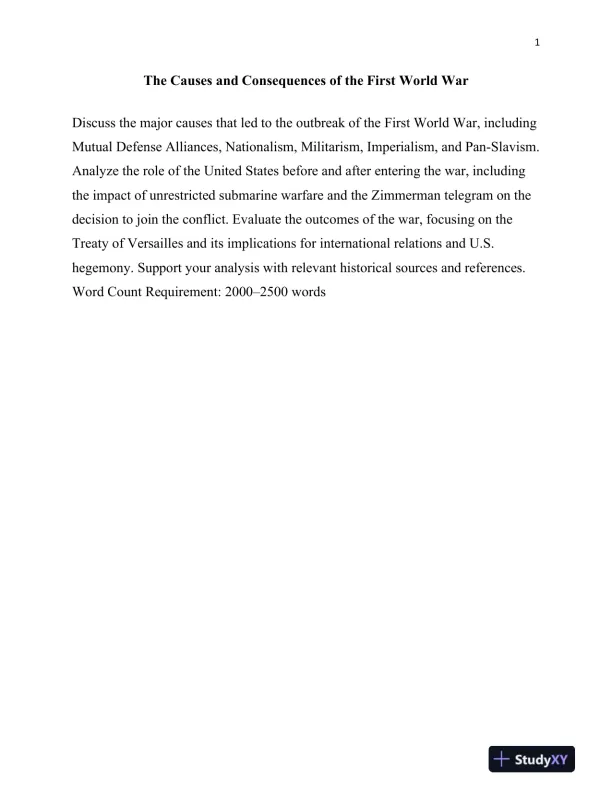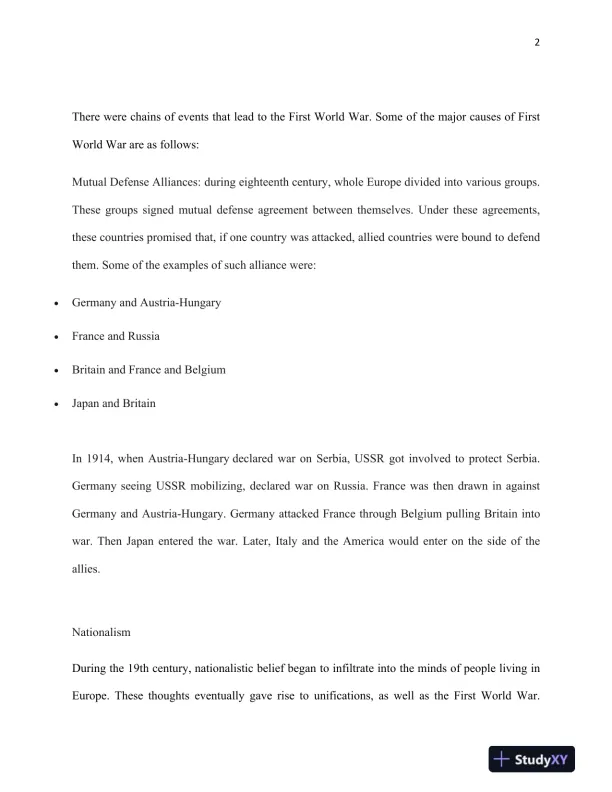Page 1

Loading page image...
Page 2

Loading page image...
Page 3

Loading page image...
A solved assignment discussing the causes and effects of World War I.
Loading page image...
Loading page image...
Loading page image...
This document has 8 pages. Sign in to access the full document!